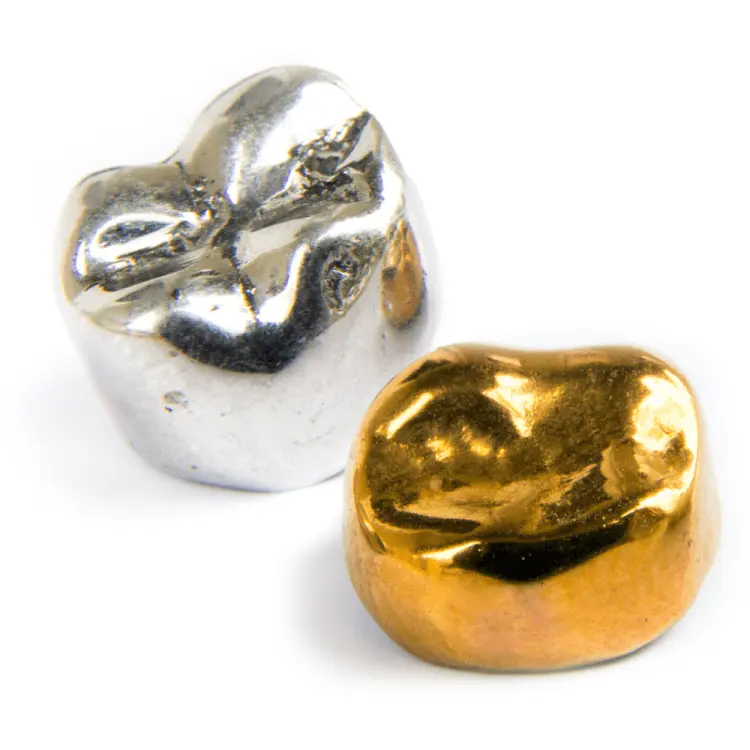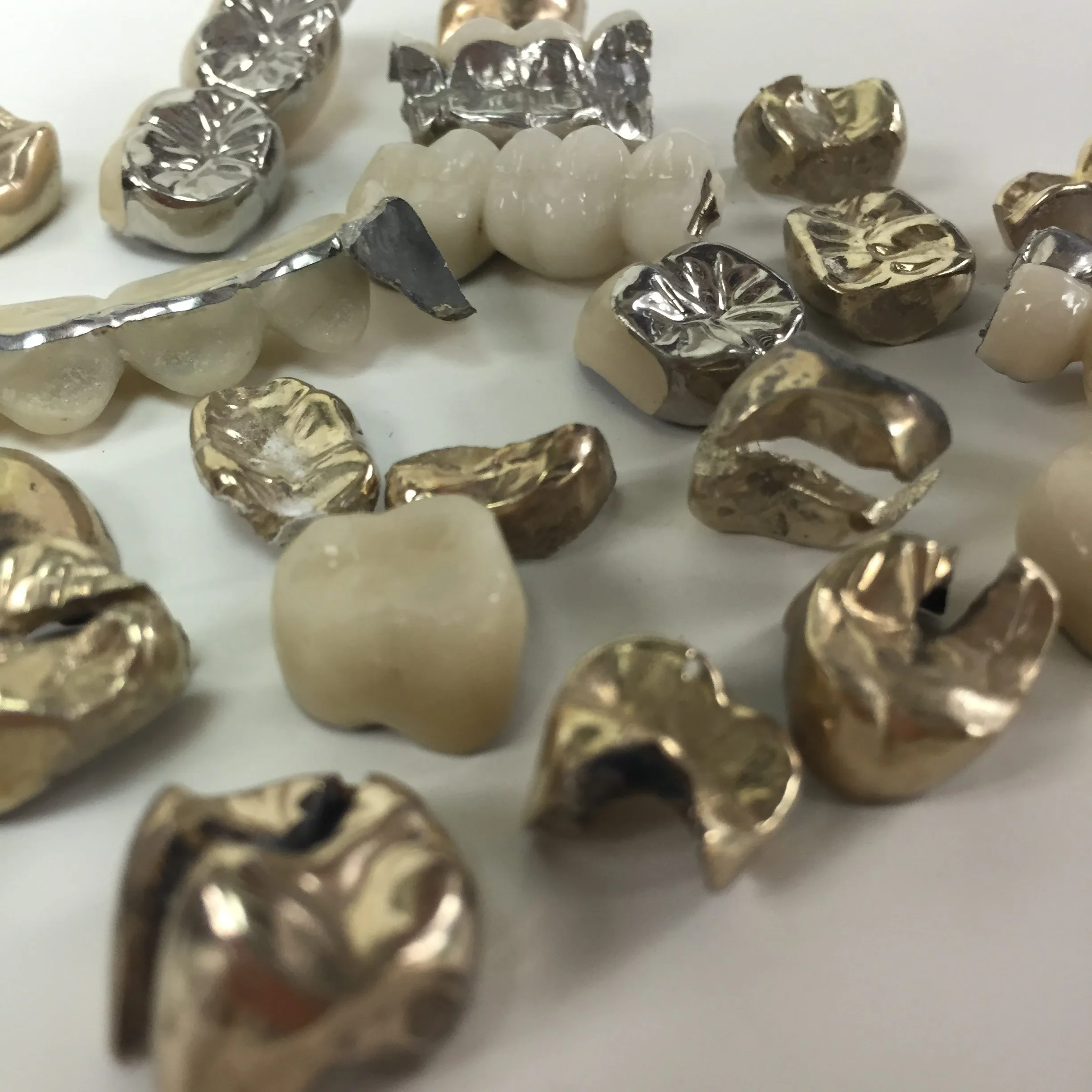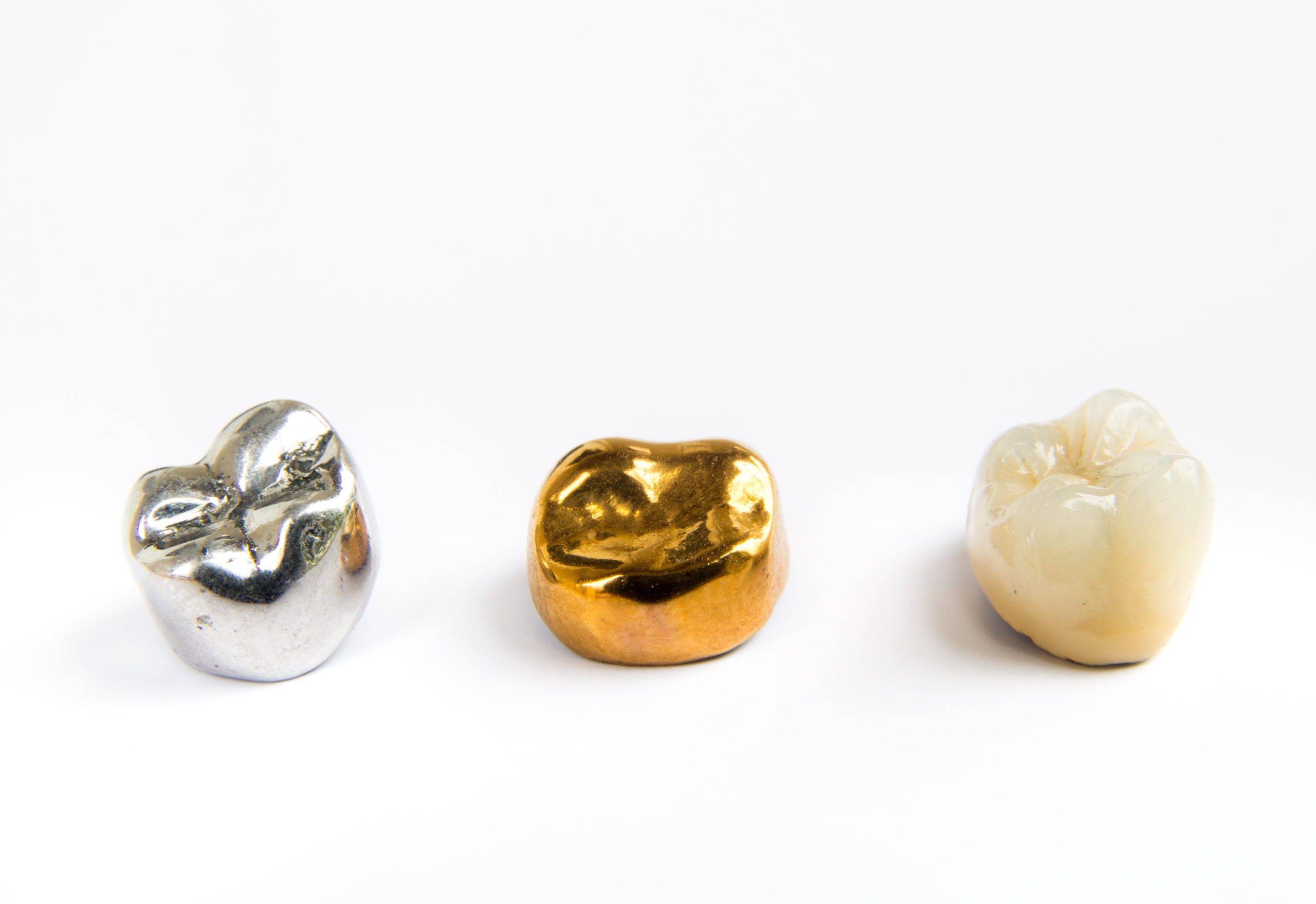Many people know you can sell old jewelry to a precious metals refinery to make some extra cash. But some may be unaware you can also sell dental scrap to a refinery. So, how do you sell dental gold?
The process of selling dental gold is much easier than you may think. This applies to both private individuals and dental offices looking to sell dental scrap.
Dental offices may have boxes of old dental scrap lying around, which contain very valuable precious metals. Similarly, dental patients may have old crowns or bridges tucked away somewhere.
Gold and precious metals prices have risen dramatically over the past few years, making dental scrap a valuable commodity. We’ll break down exactly how to sell dental scrap and answer questions you have about the process.
Research Potential Buyers

There’s no shortage of potential buyers for dental scrap these days. If you do a simple Google search, thousands of results on how to sell dental gold will pop up. But it’s wise to diligently research companies to sell to and not just sell to the first buyer you see.
Check out the company’s website and reviews, and check out their Better Business Bureau listing. Excellent dental scrap refiners have solid BBB ratings and have been in business for decades.
Companies that have established relationships with national dental organizations are also a good bet. Check to see if the dental scrap buyer is affiliated with organizations such as the American Dental Association.
Deal Directly with a Refiner
When selling dental scrap, it’s best to deal directly with a real precious metals refinery. Selling locally may seem easier, but doing so will end up with you getting significantly less for your dental gold.
Local buyers simply weigh your dental scrap and pay based on a standard rate. These buyers then sell the scrap to a real refinery like Garfield. On the other hand, real refiners melt and assay dental scrap and determine the exact precious metal content in the materials. This leads to higher payments.
Look for these Services
Great precious metals refiners are transparent about their services, and they often have resources on their websites that detail their refining process and tips on how to sell dental gold. Don’t be shy to call the refiner during business hours and ask questions like:
- Do you offer free shipping?
- Is there a minimum quantity to send in?
- What’s your assay process like?
A great refiner will be upfront and honest in answering these questions. Be wary of refiners who can’t answer these questions, or worse, send callers directly to voicemail during business hours. Customer service is essential in the precious metals refining process, and it’s imperative to choose a refinery that offers superior customer service.
Also, remember that many refineries accept used or unwanted jewelry. Adding jewelry scrap to your shipment will boost value and your payout.

How Dental Scrap Refining Works
Every precious metals refinery has a somewhat different refining process, but there are many similarities and fundamentals.
With real precious metals refineries, buyers ship their crowns, bridges, and other dental scrap, usually with a free, prepaid envelope or container. Ensure you pack the dental scrap securely when you ship. Also, check the refiner’s policies on shipment tracking and insurance in case the scrap is lost in the mail.
The refiner melts and assays the dental scrap, determining its precious metal value. Then the refiner will send payment via a check in the mail, with the payout based on the dental scrap’s market value based on the day it was processed.
What Dental Scrap Should You Send?
The value of dental scrap is based on its weight and how much precious metal it contains. All dental scrap are alloys, which are divided into categories based on the level of precious metal content. It’s impossible to know how much gold, silver, platinum, or palladium your scrap contains just by looking at it.
When sending in dental scrap, it’s best to assume everything has value. Real precious metals refineries will melt and assay the materials and determine their exact composition. So, anything without value will be discarded as waste in the refining process.
The types of dental scrap Garfield regularly receives are:
- Crowns
- Bridges
- Onlays
- Inlays
- Partial dentures
- Implants
Don’t worry about removing any cement or porcelain from the dental scrap you send in. Real refineries put all dental scrap material in a crucible and melt them down, so any waste gets discarded.
North America’s Best Dental Refinery
Established in 1892, Garfield Refining has helped more than 1 million customers get the most for their gold, silver, platinum, and palladium. We work with many different customer types, but our dental refining expertise is unrivaled in our industry. That’s why Dentaltown Magazine has named us North America’s “Best Dental Refiner” for the past 13 years in a row.
To get the most value for your dental scrap, start your shipment today.

